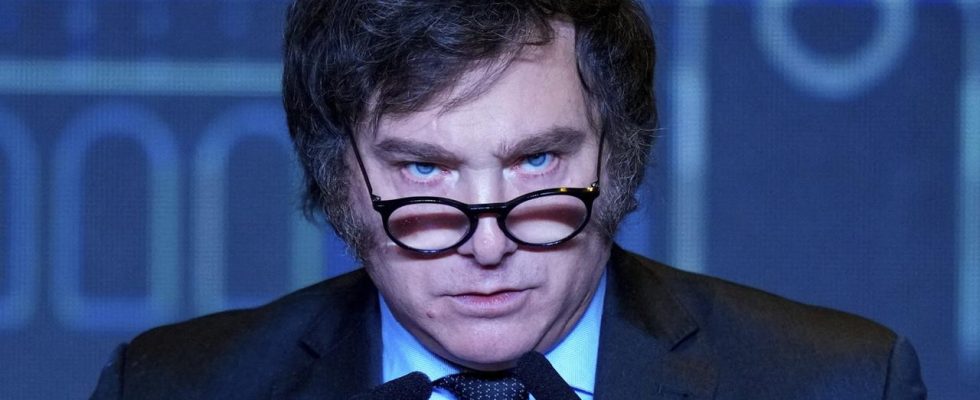The new Argentine government of President Milei has initiated radical transformations of the economy and administration. However, the reform package still has to pass Congress and the courts. Whether this will succeed is uncertain.
At midnight on Friday morning, the emergency decree announced by President Javier Milei and his cabinet on December 20th came into force. Until further notice, laws and regulations are suspended or weakened, including tenancy law, labor and occupational safety laws and health insurance contribution levels.
Doctors have to prescribe generic drugs instead of brand-name drugs, severance pay is reduced, and pensions are not automatically increased. Striking workers can be fired more easily, export tariffs are abolished – a move that immediately drove the opposition onto the streets.
“Milei exaggerates the practice of emergency decrees”
Previous governments had also introduced some changes to the law via emergency decree. But they always adhered to the constitutional order, says lawyer and constitutional lawyer Andres Gil Dominguez.
What Milei is now doing is to “exaggerate” the established practice of emergency decrees. In this way, he is trying to replace Congress and carry out a hidden constitutional reform without going through the procedure laid down in the Constitution by which it could be changed.
The decree has been under discussion in Congress since Friday, which could reject it. If there is no majority for this in the highly polarized party landscape, it will go to the Senate. If there is no majority against it either, a mediation committee will be set up. All of this could take until the end of January.
“The best chance to stop the decree is the judiciary”
Political scientist Juan Negri believes that the chances of the emergency decree lasting are limited: “I believe that Milei is taking advantage of the paralysis of the legislature,” he says. The Mediation Committee for Decrees has not yet been set up and there is great confusion in the legislature.
Milei took her by surprise, says Negri. He believes the best chance of stopping the decree is through the judiciary. Among others, the influential human rights center CELS has also filed a lawsuit with the Federal Administrative Court.
However, Negri does not see democracy in Argentina in danger as a result of Milei’s government’s advances. “Argentina is contradictory. I think we have a pretty solid democracy.” However, it is solid in its civil society, its social groups, social movements and interest groups, but not in the more institutional control mechanisms. Overall, Negri says he considers an authoritarian development in Argentina today to be “pretty unlikely.”
How many people are taking part in the general strike?
Meanwhile, the country’s largest union, CGT, announced a general strike for January 24th. This is legal, explains constitutional lawyer Andres Gil Dominguez: There is the right to strike as part of the collective defense of workers’ rights. Work stoppages or strikes are permitted, which may be limited or general as long as certain basic services continue to be guaranteed.
Although the entire country is on summer vacation in January, Dominguez says he still expects strong participation in the general strike. It remains unclear whether the emergency decree that has come into force will have its first effects or whether the entire country will wait for the political and legal decisions on it.
Kai Laufen, ARD Rio de Janeiro, tagesschau, December 29th, 2023 11:07 p.m

